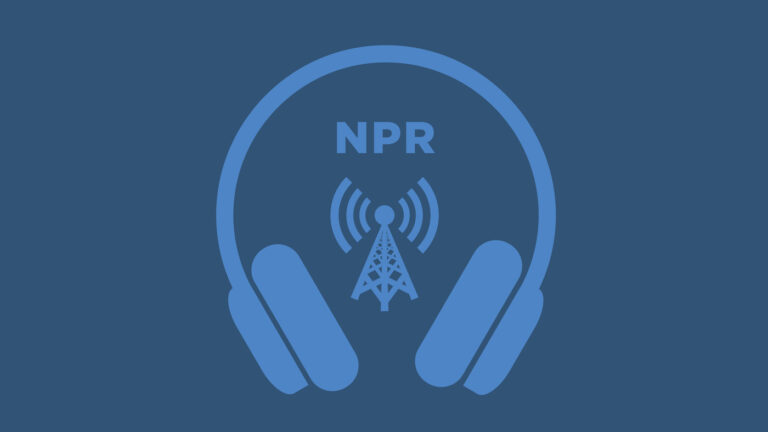As international aid groups scramble to provide relief across Sudan, Mohanad El Belal, co-founder of Khartoum Aid Kitchen, explains how local kitchens are helping to feed hungry civilians.
Daniel Kurtsleben, host:
Sudan's war has left millions of civilians hungry and displaced. Relief efforts face two major challenges: poor access due to heavy fighting inside the country, and a lack of funding for effective humanitarian operations, according to the United Nations. About $2.7 billion is needed, according to the UN, but only 12 percent of that budget has been raised. So in the meantime, local grassroots organizations have stepped up to fill the funding gap.
Mohanad El Belal: My name is Mohanad El Belal, I'm British-Sudanese and I'm the co-founder of Khartoum Aid Kitchen.
KURTZLEBEN: In March, El Belal contacted his cousin, Yassine Abdallah, to ask how he was doing. Abdallah had left his home in the early months of the war for a safer area in the neighboring city of Omdurman. Though his cousin had escaped the fighting, El Belal says there was another threat: severe hunger and malnutrition.
El Belal: People had to look around and realize that they still had some savings. They could afford to eat, but they saw their neighbor who didn't have any savings, and instead of eating two full meals, they said, let's eat one meal and give it to our neighbor. It was a way for the community to share and save people's lives.
Kurzleben: People quickly began to run out of money and turned to small community kitchens, which could not keep up with demand.
El Belal: One of the ways kitchens met this high demand was to dilute the stew with so much water that it was essentially just flavored water.
KURTZLEBEN: El Belal knew that this wouldn't solve the problem.
El Belal: It's not just about calories. It's also about the nutritional value of the food. The Sudanese diet is so low in protein, because most of the protein comes from meat, and it's out of reach for most people.
KURTZLEBEN: So he came up with the solution: peanut butter.
L. BELLAR: We decided the best way to compensate for this was to add peanut butter to our lentil stew. By adding four kilograms of peanut butter for every 10 kilograms of lentils, we increased the calorie density of the stew by more than 100 percent.
KURTZLEBEN: The initial goal was to feed 80 families in his cousin's neighborhood – about 400 people. El Belal funded the operation himself. But as the threat of mass hunger and famine spread, he realized he could scale up.
El Belal: As of June 13th, we have 18 kitchens, 12 of which we run directly and six of which are partner kitchens that we fund.
KURTZLEBEN: He teamed up with another Sudanese friend who lives in Britain and helped raise money through GoFundMe, raising more than $300,000 for Khartoum Aid Kitchen. El Belal says he's encouraged by the effort, but recognizes it's not enough.
El Belal: Many of the people who use our kitchen are still hungry, but what we are trying to do is give them enough nutrition to avoid malnutrition.
KURTZLEBEN: He says the international community needs to intervene.
El Belal: I think the world sees that what's happening in Africa is inevitable, that children are going to die. I think outside the continent, there's a lot more solidarity shown to the people of Sudan. So what we're trying to do with Khartoum Kitchen is to take individual cases and help people understand that these are normal people with dreams and hopes just like anywhere else, and they don't deserve what's happening to them.
KURTZLEBEN: That was Mohanad El Belal, co-founder of the Khartoum Aid Kitchen.
Copyright © 2024 NPR. All Rights Reserved. For more information, see our website's Terms of Use and Permissions page at www.npr.org.
NPR transcripts are produced under rush deadlines by NPR contractors. This text may not be final and may be updated or revised over time. Accuracy and availability may vary. The official record of an NPR program is the audio recording.


